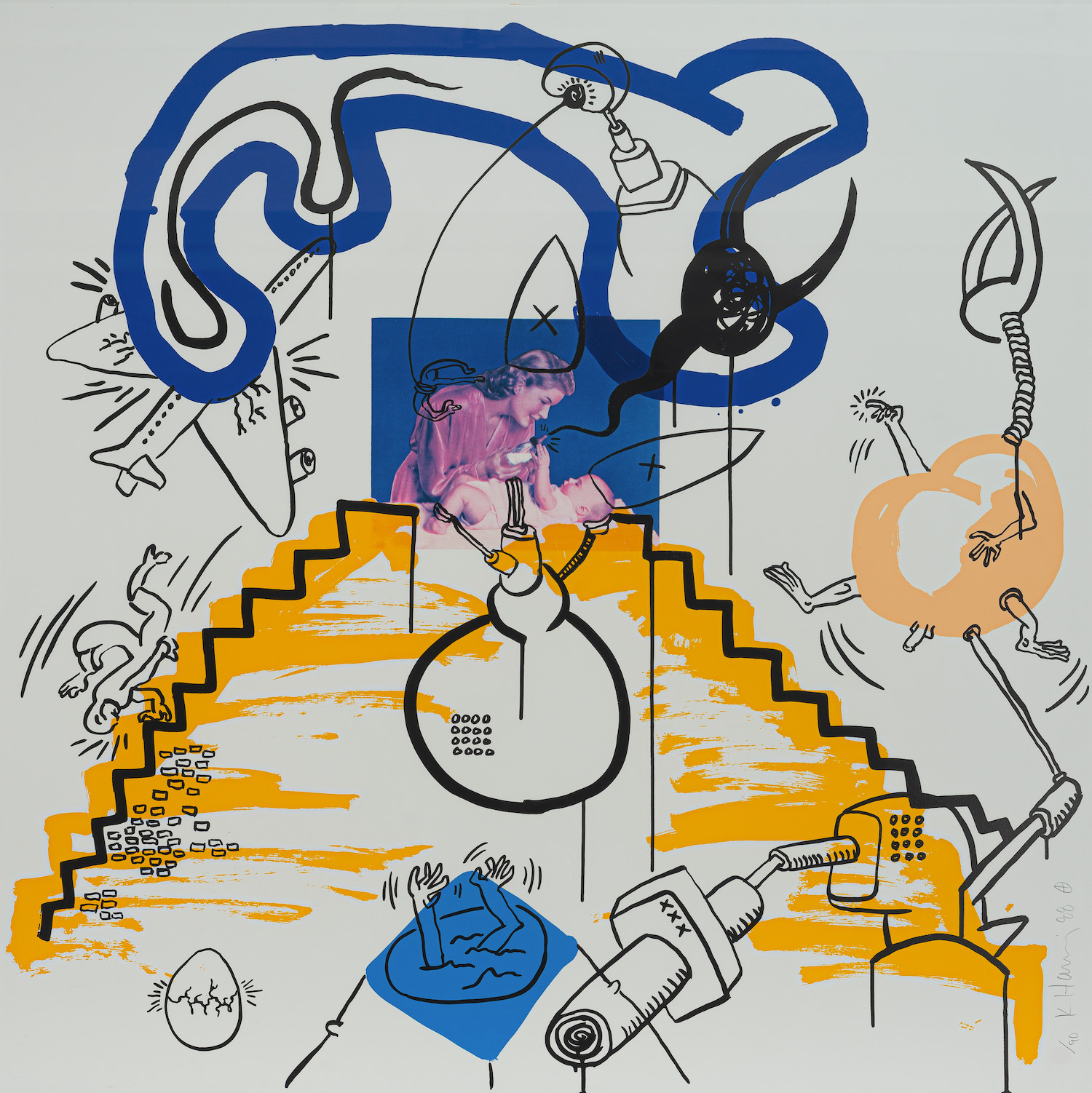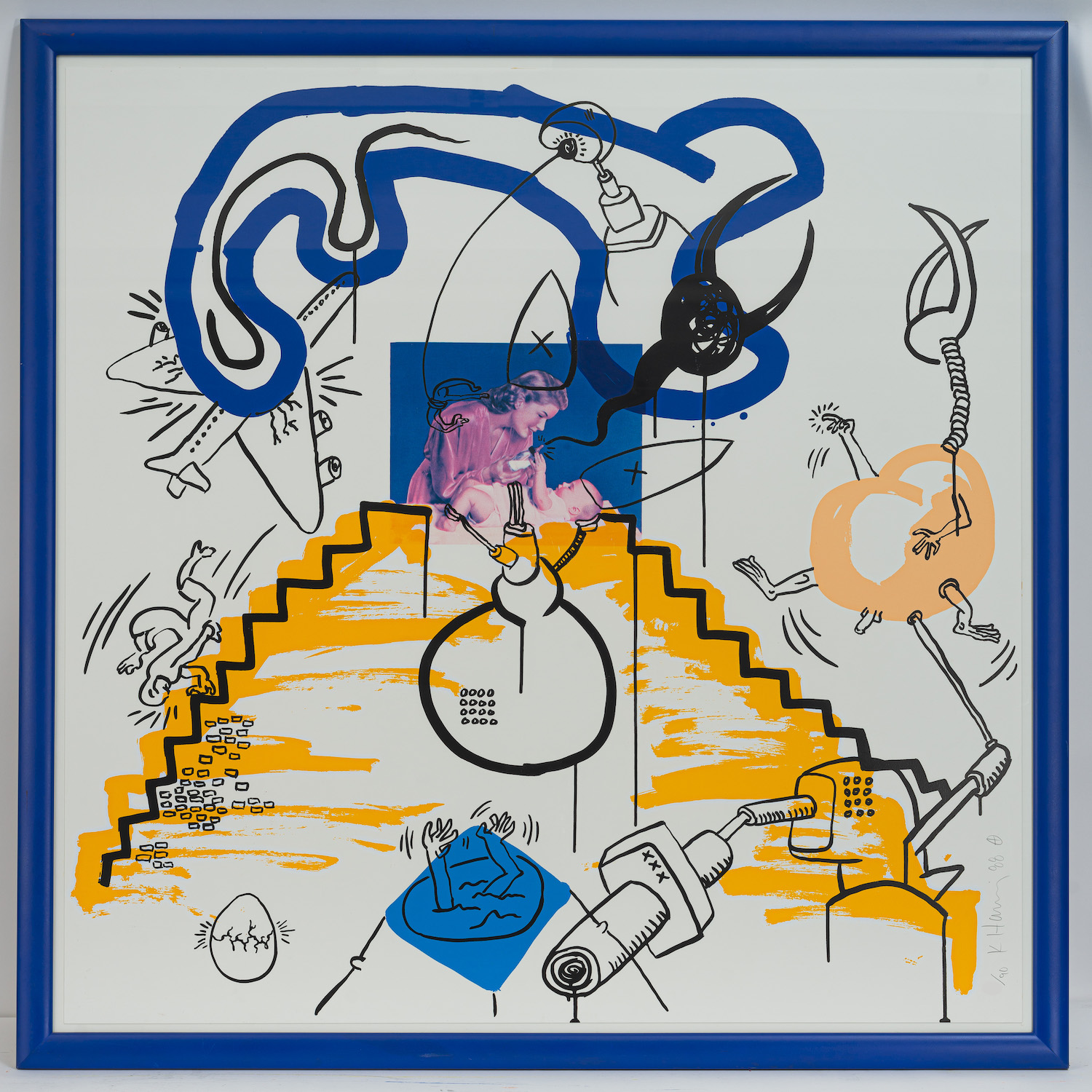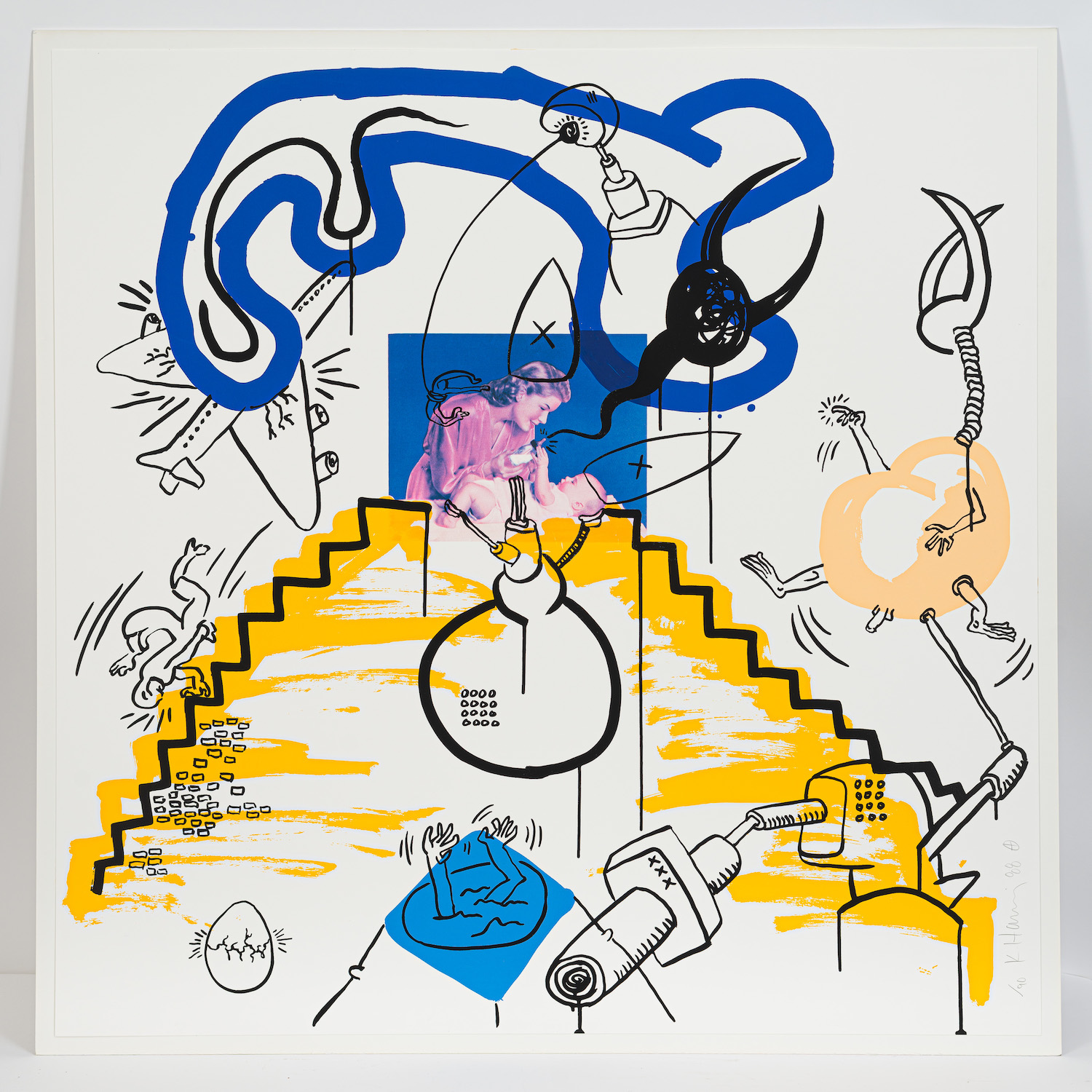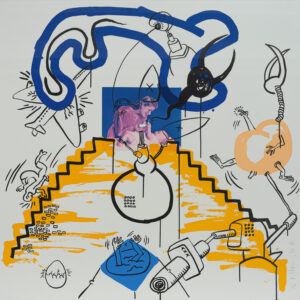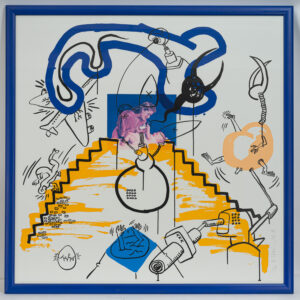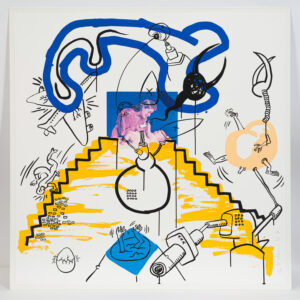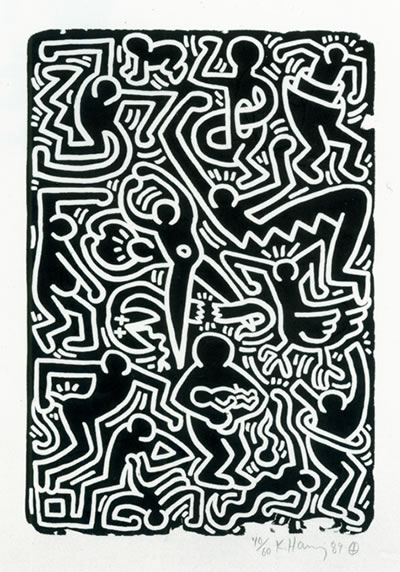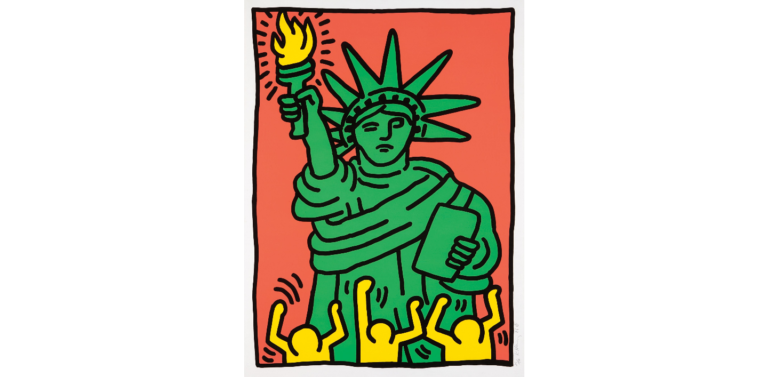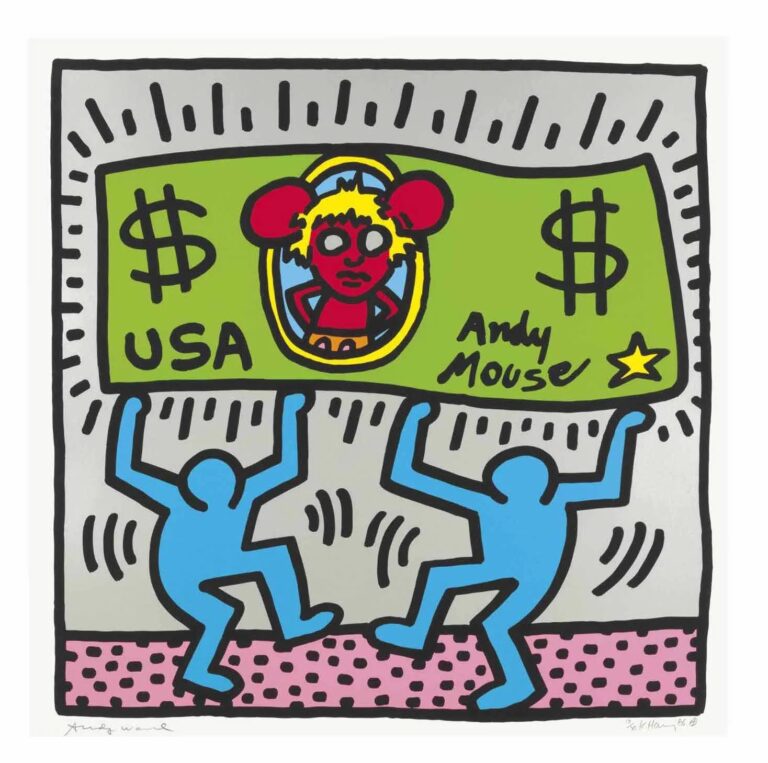In Apocalypse (3), Keith Haring delves further into the visceral and chaotic world inspired by William Burroughs’s evocative text. Amidst “Skywriters dogfight[ing], collide[ing] and explode[ing] in paint” and “Neon explosions and tornados flash[ing] through ruined cities,” Haring weaves a tapestry of intriguing, and at times, disturbing images. The strikingly rendered piece serves as a graphic encapsulation of the turmoil surrounding the AIDS epidemic and the societal anxieties of its time.
Page 3
Cherry-pickers with satin brushes big as a door inch through Wall Street, leaving a vast souvenir postcard of the Grand Canyon. Water trucks slosh out paint, outlaw painters armed with paint pistols paint everything and everyone in reach. Survival Artists, paint cans strapped to their backs, grenades at their belts, paint anything and anybody within range. Skywriters dogfight, collide and explode in paint. Telephone poles dance electric jigs in swirling, crackling wires. Neon explosions and tornados flash through ruined cities, volcanoes spew molten colors as the earths crust buckles and splinters into jigsaw pieces.
The canvas bristles with thick lines that delineate structures, while thin lines sketch out surreal cartoon-like figures. Dominating the space is a pyramid, or perhaps two converging staircases, painted with thick black steps against vibrant yellow striations. This duality is mirrored in the figures flanking this structure: on one side, a being seemingly plunges downwards in distress, while on the other, a grotesque potato-bodied creature, crowned with a horned head, ascends with evident assurance.
Above, an airplane teeters on the brink of destruction, its wings seeming to fracture, and below, a computer-like entity with an observant camera witnesses a pair of desperate arms reaching out from a cone-shaped cauldron, reminiscent of the destructive churn of modern technology and its implications. The imminent emergence of life, or perhaps a new order, is symbolized by the nearly cracking egg.
But the centerpiece of this chaotic tableau is the poignant collage of a mother from a fifties ad, reminiscent of the Madonna, tenderly leaning over her child. Haring brilliantly intervenes by transforming the child’s milk bottle with the sinister tail of a horned spermatazoa, thereby symbolizing the tragic transmission of HIV from mother to child. By incorporating mitre-like headdresses, Haring sanctifies these figures amidst the pandemonium. And intriguingly, dangling below her is a lightbulb figure, perhaps alluding to enlightenment, ideas, or the artificiality of modern life.
The overarching phallic shape rendered in purple, looming over distorted figures, devilish sperms, and military motifs, reinforces the association of death and danger with sexuality and promiscuity. The stairs serve as an anchoring element, leading the gaze towards the collaged image, which, juxtaposed amidst the chaos, blurs the lines between purity and violence.
Haring’s Apocalypse (3) is a masterful cacophony of symbols and metaphors, an artwork that probes the intersection of destruction, rebirth, and the fragility of existence amidst the overwhelming tide of modernity.

